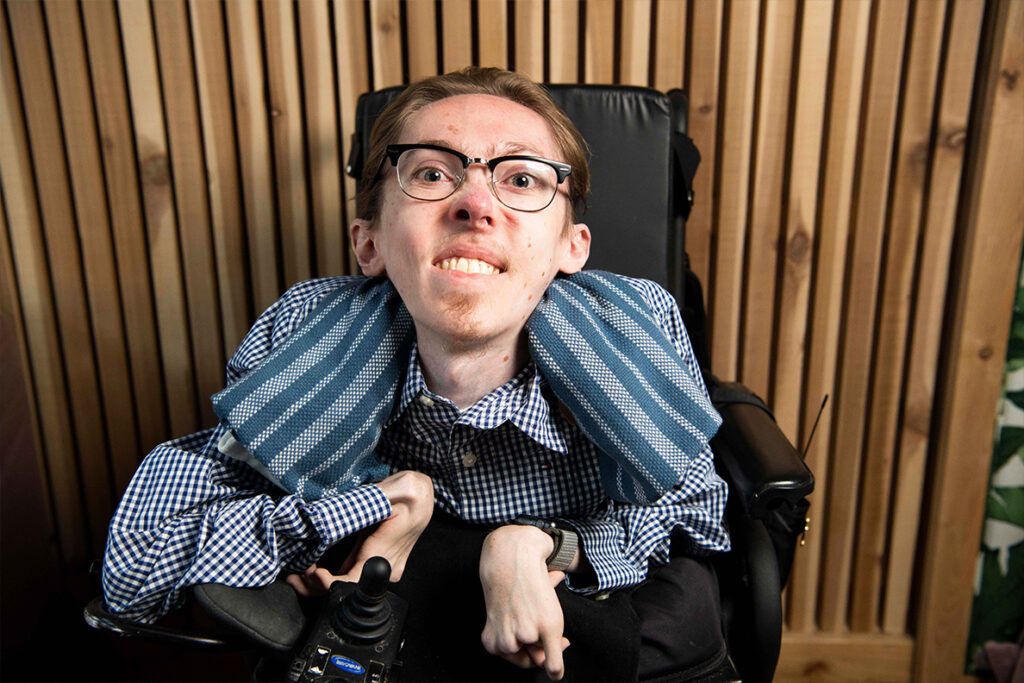The Access Center in the Division of Student Affairs at Washington State University has organized a speaker series that will examine disability and how it intersects with other aspects of peoples’ identities such as race, religion, socio-economic status, sexual orientation, and gender.
From Wednesday, Sept. 16 to Wednesday, Nov. 18, six nationally-known speakers in the disability community will give Zoom presentations for faculty, staff and students.
Actor and comedian Steve Way is the first to speak on Sept. 16, 3-4:30 p.m. To see a list of all speakers, visit the Access Center website, where participants must preregister for the free sessions.
Living better together
The Access Center teamed-up with the Disabled Students and Allies Club (DSAAC) to organize the speaker series. Mikayla Beckley, DSAAC vice president and senior premed student, said when people hear about disabilities, they usually view it as something bad because that is what we have learned from social media, television, movies and peers. By helping to organize the speaker series and other events, her club wants to put a different twist on those views, that people with disabilities are an important part of our community, are unique and special in their own ways, and have many strengths.
“Our club wants to send a message to those in the disability community letting them know they are amazing,” Beckley said. “For those who are not part of this community, we want to show you how you can best support these individuals, lead more equitable lifestyles, and live better together, as cheesy as that sounds.”
Lifting unheard voices
Access Advisor and Awareness Coordinator Davi Kallman said the idea for the speaker series evolved from the racial unrest taking place across the country. In response, the Access Center developed a statement in support of the Black Lives Matter movement and examined its policies and procedures for bias.
“We felt like we wanted to do even more by providing a platform for underrepresented voices to be heard,” Kallman said.
By participating in the speaker series, Kallman hopes people will realize that a lot of issues humans face are not one-dimensional, and they impact people on different levels depending on how they identify themselves.
“We want them to come away being a better ally, not only for people with disabilities, but also for people who identify with other underrepresented groups,” she said.
Way’s presentation is titled, “Handi-care: Healthcare for Disabled Americans.” He will discuss how his multiple identities impact his ability to access quality healthcare, the history of the American healthcare system, why disabled people are overwhelmingly negatively affected by it, and how to make it better.
Way is well-known from Hulu’s hit series, Ramy, where he plays Ramy Youssef’s best friend. Born with Muscular Dystrophy, he performs stand up in New York and New Jersey, gives motivational speeches around the country, and is the co-creator and star of the web series Uplifting Dystrophy.
Participants will have an opportunity to ask Way, and all speakers, questions following their presentations.
“It is so important for them to learn how to be accepting, to be an ally, and be their best selves when interacting with people with disabilities,” Kallman said.
Each speaker will be introduced by a WSU leader including Mary Jo Gonzales, vice president of Student Affairs; Noel Schulz, WSU first lady and professor in the Voiland College of Engineering and Architecture; Bruce Pinkleton, dean of the Murrow College of Communication; Jaime Nolan, associate vice president forcommunity, equity, and inclusive excellence in Student Affairs; Allen Sutton, executive director for outreach and education in Student Affairs; and Matthew Jeffries, director of the Gender Identity/Expression and Sexual Orientation Center.






